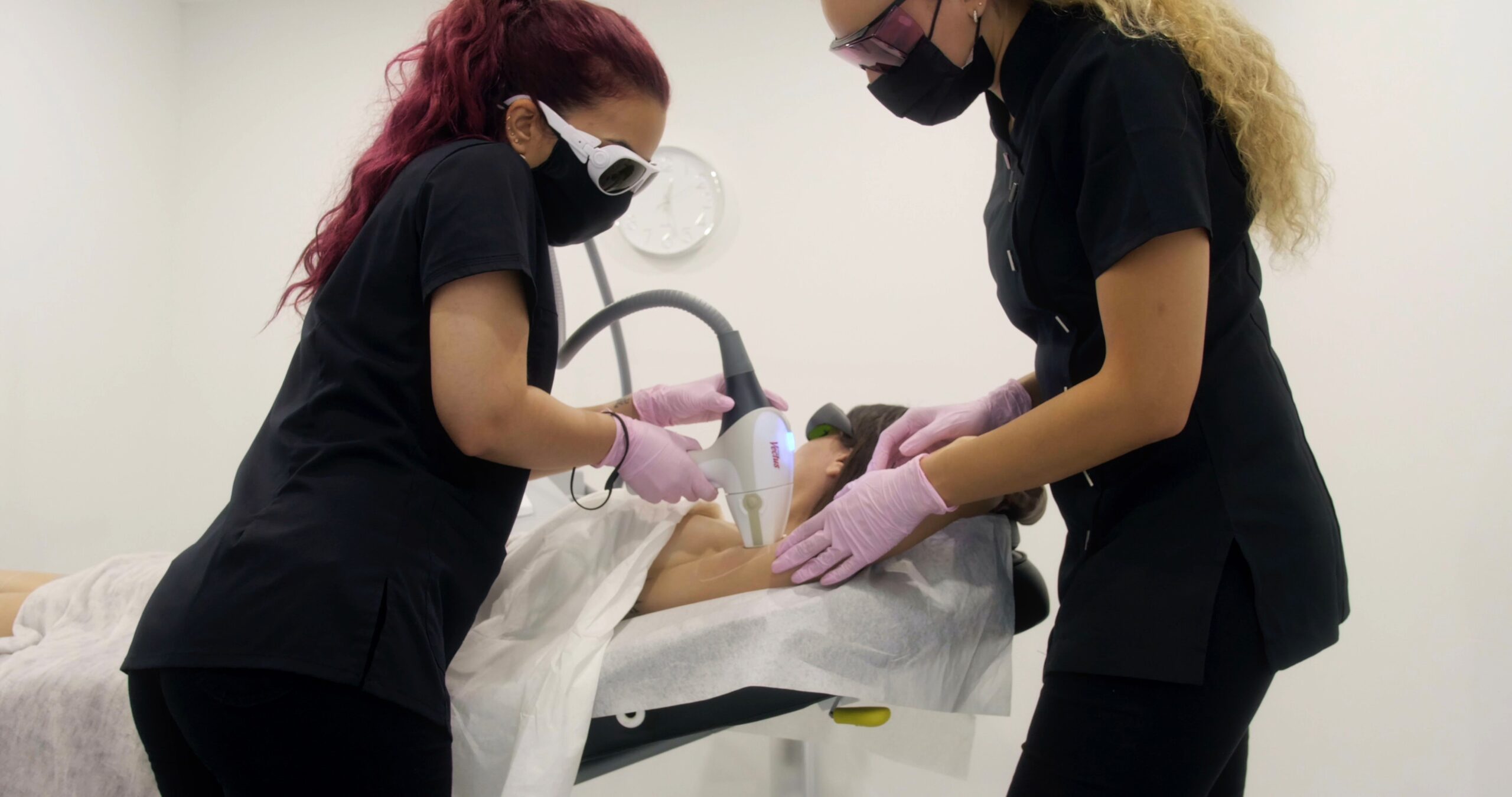How to Become a Laser Hair Removal Technician in Canada
The demand for laser hair removal technicians is growing rapidly in the health and beauty industry. Professionals are upgrading their skills to meet the rising popularity of laser-based treatments. But what does it take to become a laser hair removal technician in Canada? In this guide, we’ll break down the steps to enter this booming field, comparing it to related professions like estheticians and medical estheticians.
The Growing Industry of Laser Hair Removal
Laser hair removal is a cornerstone service in medical aesthetics, combining science with beauty to offer clients long-lasting results. This lucrative field appeals to estheticians looking to expand their skill sets or individuals entering the beauty industry with a focus on cutting-edge treatments.
Types of Beauty Professionals
To understand the qualifications for a laser hair removal technician, it’s essential to know the levels of training in Canada’s esthetics industry.
Estheticians
- Fully licensed estheticians receive training in skin care, facials, waxing, and basic beauty treatments. They often work in spas or salons but may pursue further certifications to offer advanced services.
Medical Estheticians
- Medical estheticians complete advanced certifications in treatments like laser hair removal, photorejuvenation, microneedling, and advanced chemical peels. They often work alongside dermatologists or surgeons, performing para-medical skin therapies.

What Is a Laser Hair Removal Technician?
A laser hair removal technician specializes in using laser technologies to reduce or eliminate unwanted hair. This role requires advanced training in laser operation, skin physiology, and safety protocols. Laser technicians are often considered entry-level medical estheticians but can build a rewarding career by mastering this specific skill set.
Steps to Become a Laser Hair Removal Technician in Canada
1. Complete an Esthetics Course (Optional but Recommended)
Although not always mandatory, starting with a basic esthetics course provides foundational knowledge of skin care, anatomy, and hygiene. These skills are invaluable when performing laser treatments safely and effectively.
2. Enroll in a Laser Hair Removal Certification Program
Laser hair removal certification is the most critical step. Look for courses that cover:
- Laser Technology Fundamentals: Understanding how lasers work and their effects on the skin.
- Skin Anatomy and Types: Identifying different skin tones and hair types for customized treatments.
- Laser Safety Protocols: Ensuring safe operation to minimize risks like burns or hyperpigmentation.
- Hands-On Training: Practical sessions using industry-grade equipment.
Many programs use devices like the GentleMax Pro or Candela lasers, known for their versatility and safety across various skin tones.
3. Obtain Additional Certifications
Expand your expertise by pursuing certifications in:
- Photorejuvenation: Treats pigmentation and sun damage.
- Advanced Chemical Peels: Complements laser treatments for smoother, brighter skin.
- Microneedling: Another popular service often combined with laser therapy.
4. Comply with Provincial Regulations
Canada’s regulations for laser hair removal vary by province:
- Ontario and British Columbia: Require formal training and certification.
- Quebec: May mandate supervision by a licensed medical professional.
- Other Provinces: Check local regulations for specific requirements.
5. Gain Hands-On Experience
Practical experience is crucial. Many training programs include internships or apprenticeships at medical spas, dermatology clinics, or salons.
6. Get Insured
Liability insurance is essential for protecting yourself and your clients. This is particularly important if you plan to operate independently.
7. Stay Updated on Industry Trends
The laser hair removal field evolves quickly with advancements in technology. Attend workshops, conferences, or advanced training to stay competitive.
What to Expect from Laser Hair Removal Courses in Canada
Many training academies in Canada offer bundled courses, allowing students to combine laser hair removal with other medical aesthetic certifications. These packages often include discounts, making it easier to build a diverse skill set.
Course Costs:
- Standalone laser hair removal courses: $1,000–$5,000
- Bundled medical aesthetics programs: Discounts may apply when multiple certifications are pursued.
Duration:
- Courses typically range from 2 days to several weeks, depending on the level of detail and practical training offered.
Career Opportunities for Laser Hair Removal Technicians
- Medical Spas and Clinics: Work alongside medical professionals offering advanced skin care treatments.
- Beauty Salons: Provide laser hair removal services to a diverse clientele.
- Dermatology Clinics: Collaborate with dermatologists to treat skin concerns.
- Self-Employment: Start your own laser hair removal practice, capitalizing on the industry’s growth.
Key Takeaways
Becoming a laser hair removal technician in Canada is a rewarding career path in the booming beauty industry. By completing accredited courses, adhering to provincial regulations, and gaining hands-on experience, you can position yourself as a sought-after professional in this growing field. Whether you’re an aspiring esthetician or looking to specialize as a medical esthetician, laser hair removal certification is a valuable investment in your future.